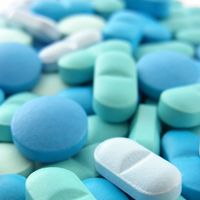Article
Antibiotic Overuse Halts Severe Acne Treatment
Author(s):
Antibiotic resistance, a grave concern spanning across all medical specialties, can be especially disconcerting in dermatology.

Antibiotic resistance, a grave concern spanning across all medical specialties, can be especially disconcerting in dermatology.
Researchers at NYU Langone Medical Center recently conducted an analysis of medical records, published in the Journal of American Academy of Dermatology, that included a detailed review of 137 medical histories of patients 12 years old and older who were treated at NYU Langone for severe skin conditions between 2005 and 2014.
They found that dermatologists treating patients with severe acne are often prolonging their prescriptions for ineffective antibiotics before prescribing the more potent medication isotretinoin (former brand name Accutane).
Seth Orlow, MD, PhD, the Samuel Weinberg Professor of pediatric dermatology and chairman of the Ronald O. Perelman Department of Dermatology, NYU Langone, and his team noted that on average, patients with severe, often “cystic” acne were kept on initial antibiotic therapy for 11 months before their dermatologists finally realized the drugs weren’t working and switched the patients to isotretinoin therapy.
They also discovered an approximate lag of six months between initial conversation about isotretinoin and actual prescription to the patients. The primary cause for the delay was that stringent controls were placed on the drug, since it was linked to an increased risk for birth defects, depression, and other adverse events.
Naturally the prolonged treatment with ineffective medication was easily able to trigger cases of antibiotic resistance.
Orlow remarked in a news release, “Out study suggests that physicians need to recognize within weeks, not months, when patients are failing to respond to antibiotic therapy in cases of severe acne.”
“Physicians and patients have become far too complacent about antibiotic overuse and its subsequent danger of increasing microbial drug resistance,” continued Orlow.
According to the study’s lead investigator, Arielle Naglar, MD, the prolonged antibiotic overuse could also be attributed to the population’s fear about isotretinoin side effects and some federal restrictions to prevent for use during pregnancy.
However, while drug risks may be real, clinical guidelines and protocols do exist for management.
Nagler concluded, “Physicians also need to start talking to their acne patients earlier about possible isotretinoin therapy, so when and if they do need to switch to it, patients are more receptive to the drug and any concerns about side effects have already begun to be addressed.”




